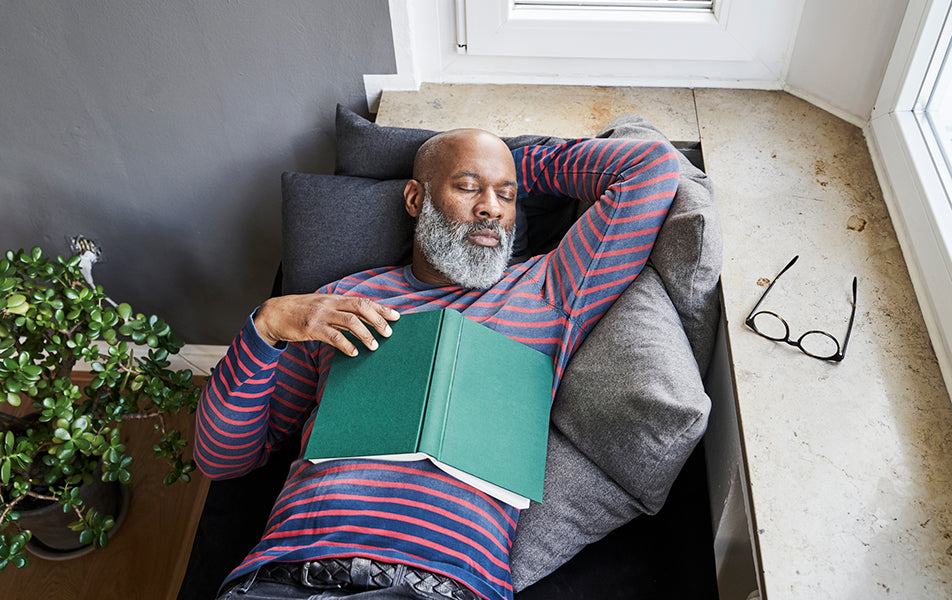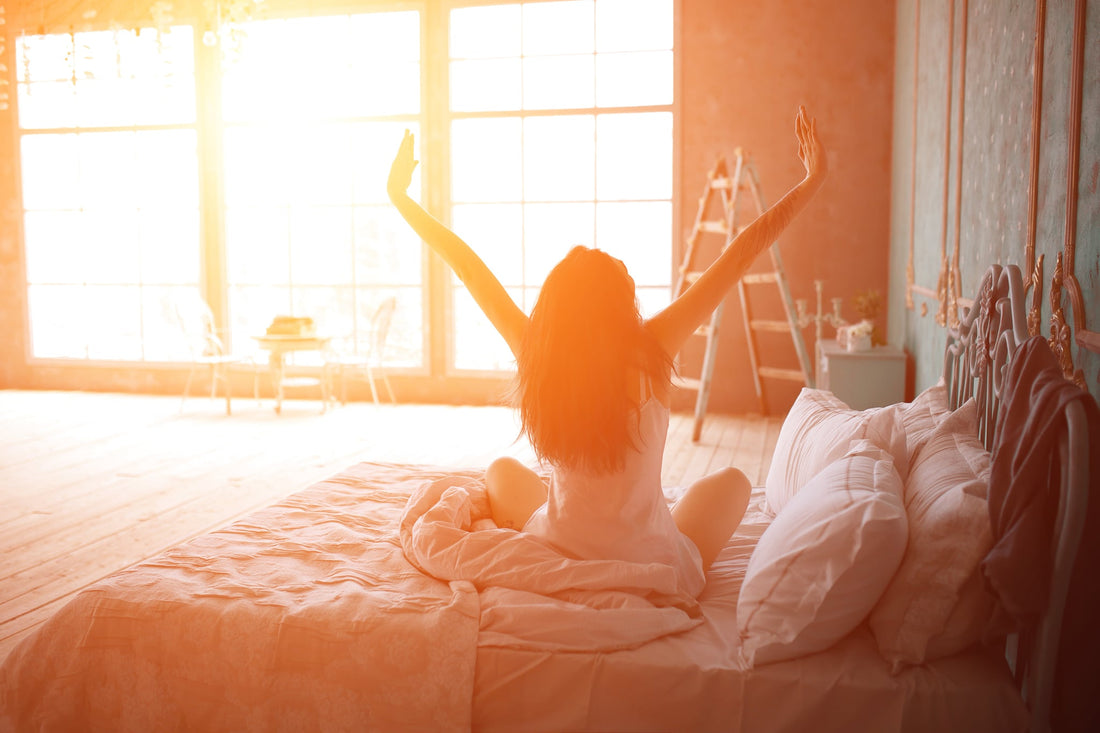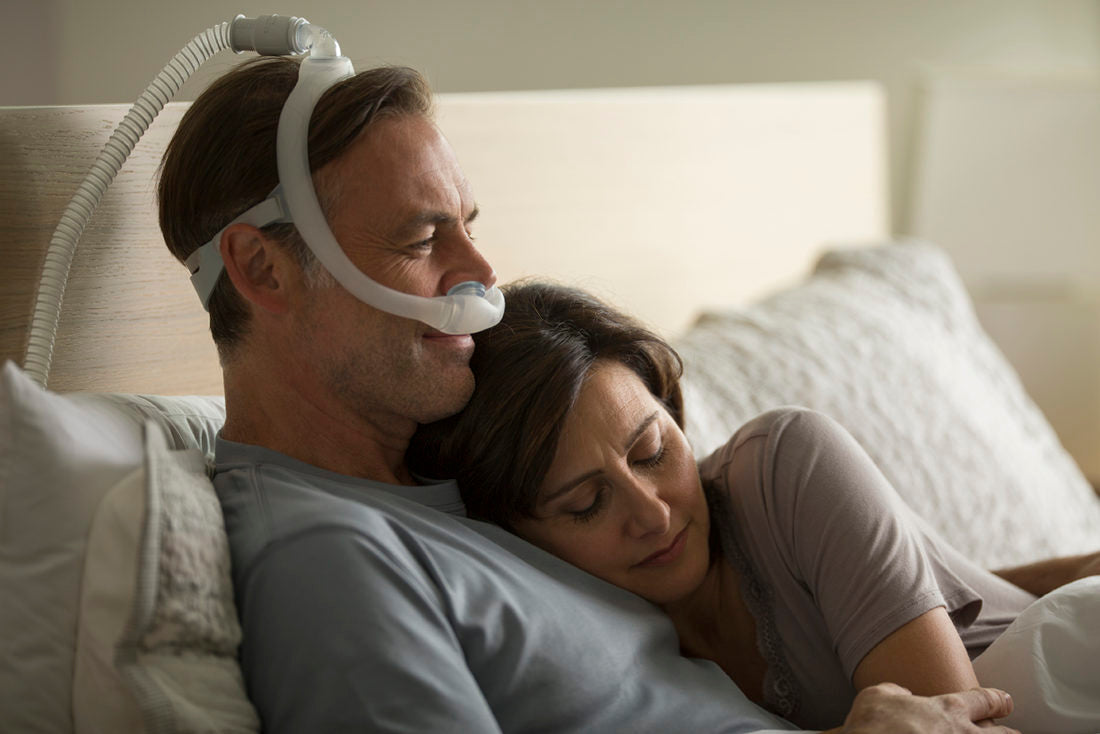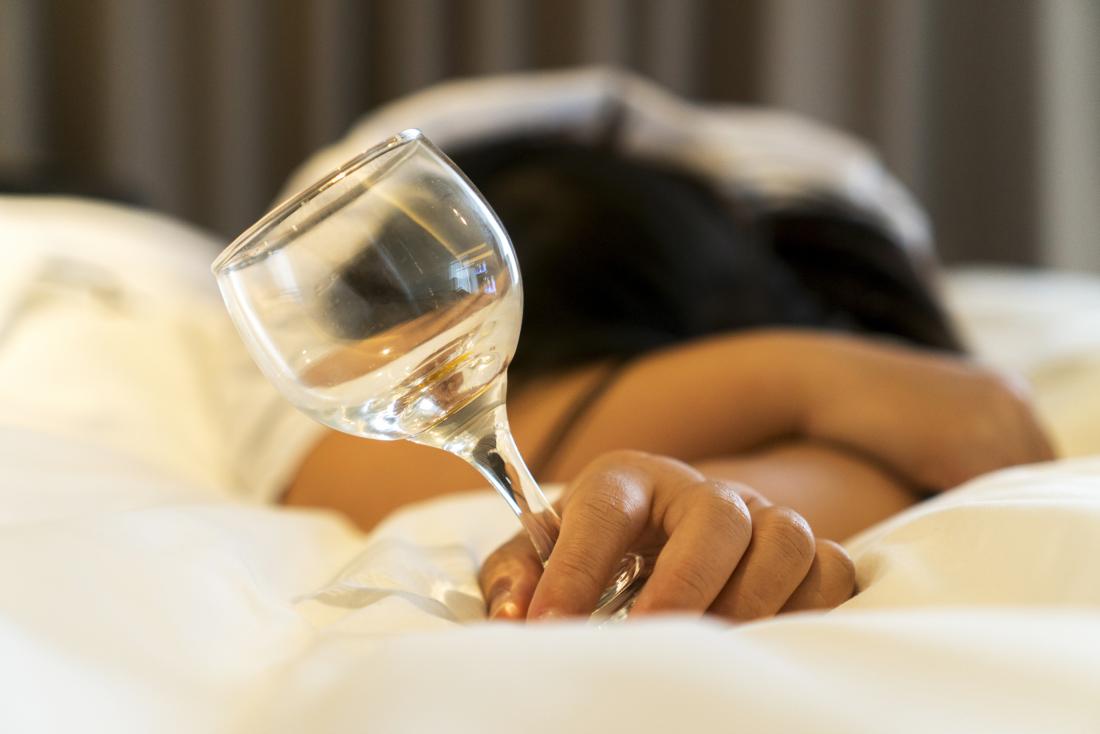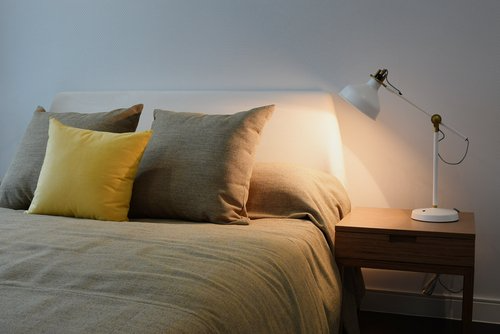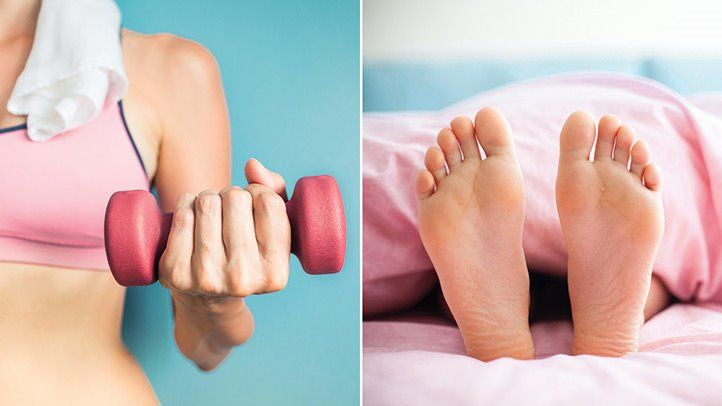News
Camping this Summer? Tips for Getting Good Sleep in a Tent
wp:paragraph {"fontSize":"normal"} Camping has become more and more popular over the past few years, but especially in the past year thanks to pandemic travel restrictions. It’s easier than ever to truly get away and unplug without venturing too far from home. /wp:paragraph wp:paragraph {"fontSize":"normal"} However, with tent camping comes the uncomfortable nights of sleeping on the ground and trying to fall asleep with the noises of nature all around you. Some find it soothing while others may find this irritating. /wp:paragraph wp:paragraph {"fontSize":"normal"} Here are a few ways to make sure you are still getting a good night’s sleep, even under the stars. /wp:paragraph wp:paragraph {"fontSize":"normal"} Create the perfect sleep environment /wp:paragraph wp:paragraph {"fontSize":"normal"} First, you will want to invest in some good quality sleeping gear, including a comfortable sleeping bag (with a good temperature rating for those cold nights) and a mat or cot to go underneath you since it’s no fun sleeping on the ground. Also, make sure your tent is dry and free of holes or rips, so the bugs don’t get in. You may consider adding a tarp above in case of rain. Finally, be sure to place your tent in an area that is flat, even, and free of large rocks and other debris. /wp:paragraph wp:paragraph {"fontSize":"normal"} Healthy Diet and Exercise /wp:paragraph wp:paragraph {"fontSize":"normal"} Stay active during the daytime so that you are tired at night. Don’t just sit by the campfire all day! Take advantage of available hikes and trails around you and other activities such as swimming, canoeing, kayaking, and more. Stick as close to your normal diet as possible and stay hydrated. Of course, you are likely to indulge while camping but don’t overdo it with the smores too close to bedtime. And make sure you are drinking a lot of water since you are outdoors all day. /wp:paragraph wp:paragraph {"fontSize":"normal"} Sleep Hygiene /wp:paragraph wp:paragraph {"fontSize":"normal"} Just because you are on vacation doesn’t mean you need to forgo proper sleeping habits. Try to follow your regular bedtime routine as much as possible. It may not be the same as home but the simple act of brushing your teeth and going to bed at the same time will help you to sleep better. Bring an eye mask if you are sensitive to light and bring earplugs if the nature noises bother you. A portable white noise machine may help too, but make sure it is not so loud that it disturbs other campers. /wp:paragraph wp:paragraph /wp:paragraph
about Camping this Summer? Tips for Getting Good Sleep in a TentNeed to Replace Some Parts of your CPAP Machine This Summer?
If you’ve been using a CPAP machine for some time, then you may know that like anything else, some of the parts wear out eventually and will need to be replaced on a regular basis, no matter how often you clean them. It may seem like a lot and it may seem costly at first (unless you get some or all of it covered by insurance), but remember that this is a very important investment in your sleep, which is an essential part of your overall well being. Here are a few CPAP parts that can wear down quicker in the summer months: The mask cushioning and/or headgear: A good rule of thumb: if your CPAP mask no longer seals properly, it’s time to replace it. Your facial oils, combined with excessive sweat in the summer can cause these parts to break down a little quicker. In order to prolong the life of these parts, make sure you are cleaning your mask on a daily basis. Using a CPAP machine with a mask that is not sealing properly will cause it to not work to its full potential, and you will not sleep well as a result. Tubing/Hose: Be sure to clean the hose or tubing of your CPAP machine regularly to remove any mineral buildup, and check it for any cracks or tears. Even the smallest of deficiencies can compromise your CPAP therapy. Luckily, they can last up to a year if cleaned regularly. CPAP Filters: Filters need replacing the most often in your CPAP machine, especially in the summer months. Summer brings an increase of pollen in the air, which will be caught in the filters. You may want to change it more frequently in the summer months, as the CPAP machine will not function at its full potential if the filters are too dirty. Don’t forget to clean the parts of your CPAP mask regularly! This will extend the life of the parts. Be sure to visit Shop CPAP supplies and accessories for your CPAP parts replacement needs.
about Need to Replace Some Parts of your CPAP Machine This Summer?Summertime Sleeping Tips
wp:paragraph Are these long and hot summer days causing you to stay awake at night? /wp:paragraph wp:paragraph Getting a good night’s sleep in the summer can be a bit trickier than you think. The days are much longer and the sun sets later. The hottest months of the year may also bring a change in your routine and schedules and adding a hot and stuffy bedroom into the mix does not help. /wp:paragraph wp:paragraph While it may seem impossible, there is actually a lot you can do in order to sleep better in the warm weather. /wp:paragraph wp:paragraph Here are seven tips for sleeping better in the summer heat /wp:paragraph wp:list {"ordered":true,"type":"1"} Keep your bedding light and breathable. Avoid any heavy materials such as flannel, this can make you sweat at night and cause sleeping to be very uncomfortable. You may also want to put away your warm winter comforter and switch to something lighter. Be mindful of your sleeping attire as well. Choose pyjamas with lighter and more breathable materials, such as cotton, that does not overheat you. Keep hydrated throughout the daytime, but don’t drink too much too close to bedtime. Get plenty of sunlight in the morning and keep the lights dim at night, this will help your circadian rhythm that sets your internal clock. Keep your bedtime consistent each night. Although you may find your schedule has changed a bit with the summer, especially with the easing of pandemic restrictions, going to bed too late can mess up your sleep cycle. Keep your bedroom on the cool side to make it more comfortable for sleeping, but not so cold that you’re shivering. If necessary, use a fan to circulate air around the room. Try taking a shower before you go to sleep, especially if you were active outside during the day. Sweat, sunscreen and bug spray that may be lingering can cause skin irritation if it is not rinsed off properly. Getting clean can also make you feel more comfortable when you go to sleep. /wp:list
about Summertime Sleeping TipsWhy CPAP Users Need a Support Team
wp:paragraph Starting a new journey with a CPAP machine can be challenging and terrifying. While you may feel excited to finally get your sleep apnea under control, you may not know much about the device, and learning to use it properly may take some time. You may also feel overwhelmed at the fact that you have to use this machine in the first place, and get used to sleeping with it each night. /wp:paragraph wp:paragraph One of the best things you can do for yourself is to establish a support team. Having people who support you and are there to help you is the key to success when you are on your CPAP journey. /wp:paragraph wp:paragraph Your CPAP support team may consist of the following people; /wp:paragraph wp:paragraph Friends and Family /wp:paragraph wp:paragraph While your loved ones may not be going through the same thing you are, don’t rule them out from your support team. These people know you the best and can lend a listening ear and provide words of encouragement. Also, don’t rule out your spouse, they are the ones sleeping next to you each night, and having them on your side can be crucial to successful CPAP therapy. /wp:paragraph wp:paragraph Your trusted medical professionals /wp:paragraph wp:paragraph Keeping a good relationship and open communication with your doctor and/or your medical team is important. They make important decisions with your medical care, so it is important that you are involved and you are able to speak up when there is an issue. /wp:paragraph wp:paragraph Other CPAP patients /wp:paragraph wp:paragraph Finding other CPAP users to connect with can be very helpful and can be a great outlet to ask any questions. They can also empathize with some of the more difficult and challenging parts of using a CPAP machine. There are many support groups out there for CPAP users, some that meet virtually and others that meet in person, your doctor may be able to recommend something that is local. There are also many online forums out there for CPAP users, and this can be a great place to go if you are not comfortable with face-to-face interaction. /wp:paragraph
about Why CPAP Users Need a Support TeamIs Sleep Apnea Hurting your Relationship?
Having sleep apnea doesn’t just affect your health and daytime function. Did you know that sleep apnea can have a big impact on your romantic relationships? Don’t let sleep apnea tear your relationship apart! It is actually quite common for couples to experience tension in the relationship because of sleeping issues, and untreated sleep apnea has been known to lead to many problems in the relationship. Snoring is a very common symptom of sleep apnea that may be interfering with your partner’s ability to get a good night’s sleep. You may also find that you wake up many times throughout the night as a result of sleep apnea episodes, which could also disturb your partner’s sleep. Although it may seem discouraging, there are ways to fix this. A bad night’s sleep for either of you could lead to poor concentration and sleepiness during the daytime and could lead to fighting, resentment, hostility, and a lower desire for intimacy. While treating your sleep apnea is essential, it is important to take your partner’s needs into account as well, they deserve a good night’s sleep too! A few tips for sleep apnea patients to improve their relationship; First of all, communication is key in any relationship. Lashing out at each other when you are both overtired will not help to improve your relationship in any way. If you think you have sleep apnea, or if you think your partner may be experiencing symptoms, it is important to have a conversation about these issues and seek help from your doctor if needed. If you or your partner need to sleep in another room temporarily to sleep better, there is no shame in that. That way both of you can wake up feeling well-rested. If you do sleep in the same room together, don’t rule out the use of an earplug or a white noise machine. Finally, be sure to stick to your CPAP treatment! While the CPAP mask may have you feeling less attractive to your spouse, remember that this is essential for getting a good night’s sleep, and in turn, your partner will sleep better as well and your relationship will improve if you are both well-rested. Visit Papsmart to shop CPAP machines and supplies to find the CPAP machine and mask that is right for your needs.
about Is Sleep Apnea Hurting your Relationship?All About Insomnia
wp:paragraph You may have often found yourself lying awake in bed at night, unable to fall and stay asleep, no matter how hard you try. Sometimes this is a rare, one-off occurrence, other times it can last for several days, weeks or even months. /wp:paragraph wp:paragraph This is a common sleep disorder known as insomnia. Simply put, insomnia can make it incredibly difficult for you to fall and stay asleep, or it could also cause you to wake up much earlier than normal, and you cannot fall back asleep. Many people who have insomnia, whether it is for one night or longer, find themselves tired and groggy throughout the daytime with low energy and an inability to concentrate. /wp:paragraph wp:paragraph There are two different types of insomnia you may experience; /wp:paragraph wp:paragraph Short term (acute) Insomnia: This is known to last only a few days or weeks. Short term insomnia is typically the result of ongoing stress or a traumatic life event. Travel can also lead to short term insomnia, especially if you are travelling to a different time zone and you experience jet lag. /wp:paragraph wp:paragraph Long term (chronic) insomnia: This is known to occur more consistently for a month or more and is usually the result of an undiagnosed medical condition. Long term insomnia typically requires medical treatment. /wp:paragraph wp:paragraph If you are experiencing insomnia, there are a few things you can do to help you sleep better: /wp:paragraph wp:list Keep your bedtime consistent each night Avoid playing on your phone or tablet, or watching TV too close to bedtime Get exercise during the daytime to help promote a good night’s sleep Avoid caffeine or alcohol close to bedtime Avoid eating a large meal before bedtime Keep your bedroom cool and comfortable Find ways to make yourself relaxed before bedtime, such as reading or meditating /wp:list wp:paragraph Leaving insomnia untreated can lead to many serious health consequences. If your insomnia persists for a month or more and there is no known cause, then it may be time to speak to your doctor to discuss treatment options. /wp:paragraph
about All About InsomniaSleep and Alcohol
wp:paragraph Thinking about having a few drinks this weekend? Before you go too crazy, you should be aware of how alcohol could affect your ability to get a good night’s sleep. /wp:paragraph wp:paragraph While having a few drinks in moderation is usually okay for sleeping, having too much can cause problems when bedtime comes around. And let’s face it, no one enjoys the unpleasant “morning after” effects that alcohol has on your system. While drinking before bedtime can cause you to fall asleep faster, you may not necessarily stay asleep the way you should be. Many people experience insomnia when they drink too much and this can also affect your rapid eye movement (REM), an essential part of the sleep cycle where you are in a deep sleep, and your body has been known to restore itself during this process. The more you drink, the worse the effects can be. /wp:paragraph wp:paragraph A few tips to safely enjoy a few alcoholic beverages without disrupting your sleep: /wp:paragraph wp:list Know your limits and stick to them: drinking alcohol can affect everyone differently depending on your age, gender, and body type. Don’t drink very close to bedtime: having 1-2 drinks earlier in the evening (for example, with dinner) is usually okay, but having too much to drink, especially late at night close to bedtime can really hurt your ability to get a good night’s sleep. If you did indulge a bit too much, drink lots of water before you go to bed: alcohol is known to dehydrate your system, so drinking water can not only help to hydrate you, but it can help you to avoid getting a headache in the morning, a typical after-effect of drinking too much. Do not use alcohol as an aid to fall asleep: speak to your doctor if you are having trouble sleeping at night, they can assist you using a healthier method than alcohol. /wp:list
about Sleep and AlcoholHow to Create the Perfect Sleeping Environment
wp:paragraph You may already know the importance of creating good sleeping habits overall, but did you know just how much of an impact your sleeping environment has? /wp:paragraph wp:paragraph Making your bedroom the perfect sleeping environment is essential for a good quality sleep each night, so that you can function well during the daytime. After all, you spend a third of your life sleeping, so skipping out on a quality sleep is not something you want to do! /wp:paragraph wp:paragraph Here are six tips for creating the perfect environment for sleeping /wp:paragraph wp:list {"ordered":true,"type":"1"} Keep the room dark while you sleep: leave the lights off and use blackout curtains. Bonus tip: chose a color for your bedroom walls to help promote a calm environment and avoid anything too flashy. Keep the room temperature a little on the cooler side: having a cool room is best for sleeping, but make sure you are not so cold that you are shivering at night. Keeping your room too warm can be uncomfortable and you may find yourself tossing and turning. Leave electronics out of the bedroom: many people like to fall asleep with the TV on but this is not recommended, keep it in a separate room. You should also try and leave your phone and tablet charging in another room overnight. Be mindful of any noise: background noise can be distracting while you are trying to sleep. If you are a light sleeper and you wake easily, you may want to consider using a white noise machine. Use your bedroom (and especially your bed) for sleeping only: resist the temptation to use your bedroom as an office, lounge area, or social space and keep the clutter in your bedroom to a minimum. This way you can fully relax once it’s bedtime and you won’t feel anxious about other life factors. Make sure your bed is comfortable: invest in a good quality mattress and pillows (depending on which position you sleep in) and don’t overdo it with the covers. /wp:list
about How to Create the Perfect Sleeping EnvironmentCan Exercise Improve your Sleep Apnea?
wp:paragraph Did you know that exercise has numerous benefits for your overall sleep cycle? This is especially true if you suffer from sleep apnea. /wp:paragraph wp:paragraph Not only can proper exercise help you to fall asleep faster, but it can improve your quality of sleep overall. If you suffer from sleep apnea, many studies have made numerous connections between weight loss (which includes diet and exercise) and an improvement in sleep apnea symptoms. Most severe cases of sleep apnea will still require further medical treatment such as a CPAP machine and exercise is not a cure for sleep apnea, however, a healthy change in lifestyle can certainly lessen the severity of your symptoms. /wp:paragraph wp:paragraph If you find you are sitting more and more these days and want to pick up some healthy exercise habits, here are a few tips to get started: /wp:paragraph wp:list Start small and low impact: all you need to do is get moving! Start with a short walk or maybe do a short exercise routine online, then you can build up the momentum afterwards to do something that challenges you a little more. Stick to something you enjoy: it’s easy to fall off track if you are doing an exercise routine you are not enjoying. Maybe the treadmill is not your thing but if you enjoy another sport or activity that gets you moving then stick to that. Ask for support: having support from a friend, family member or partner can be extremely beneficial in your journey and can motivate you to stick with it. Avoid high intensity activity within 1-2 hours to bedtime: all those endorphins that get released during exercise are great, but not at the end of the day when you are trying to slow down and get into a sleeping routine. Don’t skip out on healthy eating: diet, sleep and exercise are all important parts to maintaining a healthy lifestyle. Stick to your CPAP treatment: while exercise can improve your sleep apnea symptoms, it is not a cure, and not using your CPAP machine can only make your symptoms worse. /wp:list
about Can Exercise Improve your Sleep Apnea?